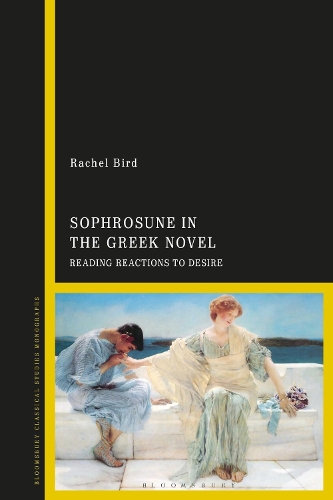
Sophrosune in the Greek Novel: Reading Reactions to Desire
(Hardback)
Available Formats
Publishing Details
Sophrosune in the Greek Novel: Reading Reactions to Desire
By (Author) Rachel Bird
Bloomsbury Publishing PLC
Bloomsbury Academic
10th December 2020
United Kingdom
Classifications
Professional and Scholarly
Non Fiction
Literary studies: ancient, classical and medieval
Ancient Greek and Roman philosophy
883.0109
Physical Properties
Hardback
248
Width 156mm, Height 234mm
517g
Description
This book offers the first comprehensive evaluation of ethics in the ancient Greek novel, demonstrating how their representation of the cardinal virtue sophrosune positions these texts in their literary, philosophical and cultural contexts. Sophrosune encompasses the dispositions and psychological states of temperance, self-control, chastity, sanity and moderation. The Greek novels are the first examples of lengthy prose fiction in the Greek world, composed between the first century BCE and the fourth century CE. Each novel is concerned with a pair of beautiful, aristocratic lovers who undergo trials and tribulations, before a successful resolution is reached. Bird focuses on the extant examples of the genre (Charitons Callirhoe, Xenophon of Ephesus Ephesiaca, Longus Daphnis and Chloe, Achilles Tatius Leucippe and Clitophon and Heliodorus Aethiopica), which all have the virtue of sophrosune at their heart. As each pair of lovers strives to retain their chastity in the face of adversity, and under extreme pressure from eros, it is essential to understand how this virtue is represented in the characters within each novel. Invited modes of reading also involve sophrosune, and the author provides an important exploration of how sophrosune in the reader is both encouraged and undermined by these works of fiction.
Reviews
This is a profound and fascinating study of a virtue that is central to the understanding of ancient Greek (and, incidentally Latin) novels. * The Classical Review *
Author Bio
Rachel Bird is an independent researcher based in the UK. She gained her PhD at Swansea University, and has since published research on the novels of Heliodorus, Achilles Tatius and Chariton.
